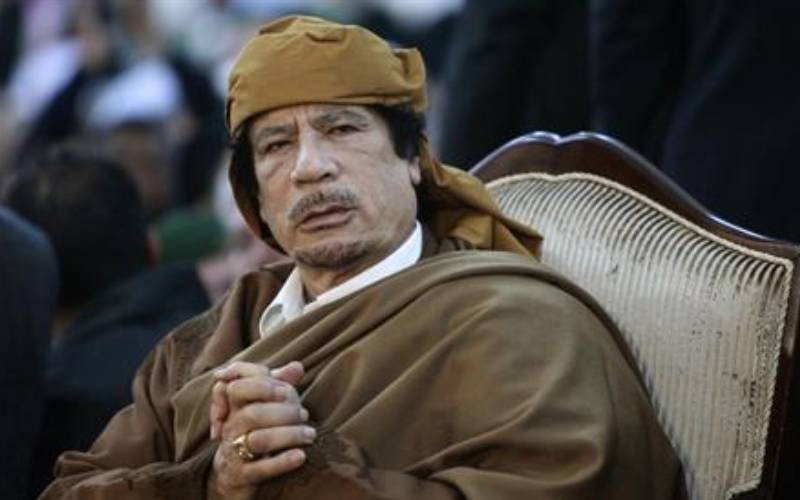×
The Standard e-Paper
Kenya’s Boldest Voice

The late Libyan leader Muammar Gaddafi. [Reuters]
Of late, there has been controversy about 2,000 or so Pakistanis allegedly stranded in Kenya and loitering all over the place. The story told is that they were headed to Saudi Arabia as casual labourers. Maybe.